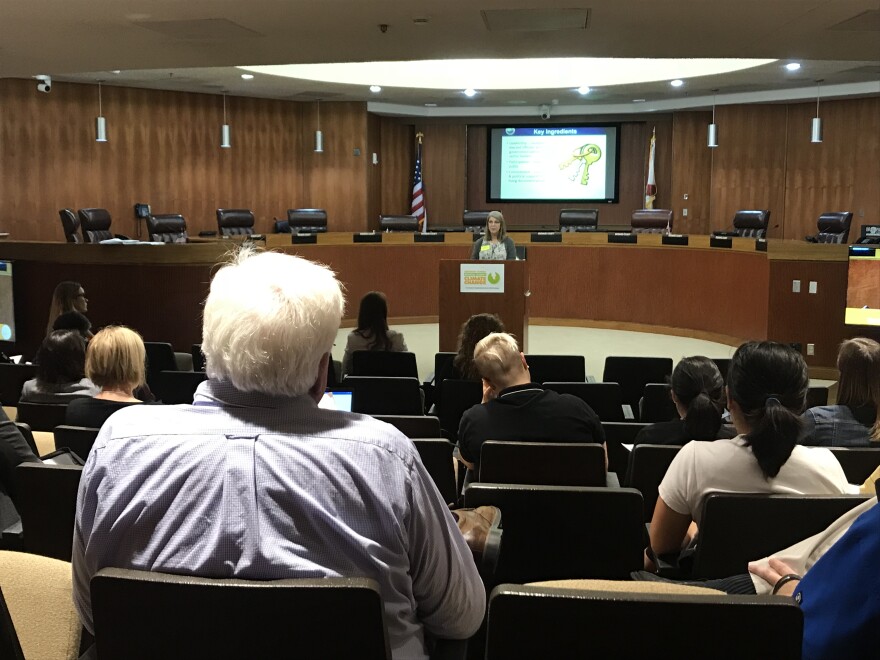After Hurricane Irma, some people with low-wage jobs took weeks to recover the costs of supplies and days of missed work. In parts of the Florida Keys, people spent months rebuilding homes and businesses.
On Friday in Fort Lauderdale, leaders from the four southeast Florida counties discussed how to avoid those sorts of challenges after future disasters.
"If we have pre-planning in place, then we can activate and bounce back quicker," said Susy Torriente, chief resilience officer for Miami Beach and a steering committee member for the Southeast Florida Regional Climate Change Compact. As part of the compact, Broward, Miami-Dade, Monroe and Palm Beach counties have agreed to conduct workshops on regional issues such as hurricanes and transportation.
Torriente said one goal of Friday's workshop was to think about how local governments and businesses can be partners in disaster recovery. That's in keeping with a recent re-commitment among compact members to include private partners in planning efforts.
Read more: 'Worse Than The Hurricane Itself,' Recovery From Irma Still A Daily Reality For Many In Keys
"We hold these workshops in the region so we can train our city and county staff and help them understand the recommendations in the Regional Climate Action Plan," Torriente said, referring to the tool members use to exchange best practices for resilience challenges. The climate action plan includes sections on public health and emergency management, and emphasizes equity -- including making sure all residents have access to the post-disaster supplies and services they need.
Torriente noted pre-planning for hurricanes is particularly important because rising seas will worsen storm surge and flooding, and global warming due to climate change may be making storms stronger.
That's also the thinking among community groups from Miami-Dade and Broward who recently held a community hurricane preparation simultion, then presented their recommendations to officials.
Southeast Florida's collaborative pre-planning effort is a good example for other regions throughout Florida, said Whitney Gray, director of the Florida Resilient Coastlines Program for the state Department of Environmental Protection. She called the regional climate compact, which has inspired similar efforts statewide, "the gold standard," and urged leaders to follow through on the pledge they made last year to emphasize equity in resilience plans.
Friday's event included separate meetups for each county where leaders discussed their specific challenges and solutions in the aftermath of a hurricane or other disaster, such as a flood or terrorist attack. It also included a presentation by Bill Johnson, director of emergency management for Palm Beach County, which has earned statewide recognition for its pre-disaster planning efforts.



